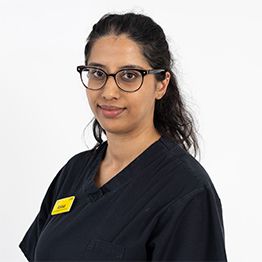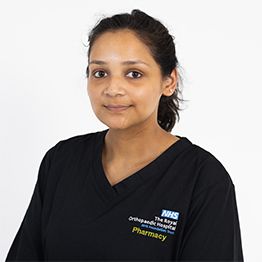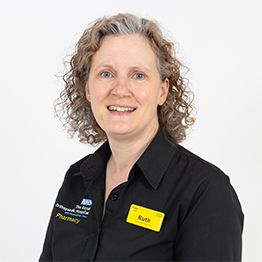Pharmacy
About
Our on-site Pharmacy provides a full service to the ROH, making sure medicines are used safely, effectively and efficiently. The ROH Pharmacy also supports education and training, and works with research teams.
The Pharmacy department is closely involved in all stages of medicine use; from purchase and supply through to checking how medicines are used in clinical settings and providing post discharge advice to patients.
Roles in the Pharmacy team
There are many roles in Pharmacy, at the ROH we have:
- pharmacists
- pharmacy technicians
- pre-registration students
- pharmacy assistants
- administration staff
The Chief Pharmacist holds overall responsibility for ensuring a high-quality service and that the use of medicines is optimal in the Trust.
The Deputy Chief Pharmacist is the named lead for medication safety (or Medication Safety Officer, MSO).
The ROH Drugs and Therapeutics Committee oversees various issues to do with medicines optimisation.
This includes monitoring medicine guidelines, responses to national alerts and the managing the Trust Medicines Formulary .
Together with Pharmacy colleagues across Birmingham and Solihull (BSol), as part of the BSol Integrated Medicines Optimisation Committee (BSol IMOC) they also make assessments on new drugs.
The DTC, in combination with the Quality and Safety Committee, also monitor the Trust strategic objectives to do with medicines:
• Ensuring sustainability
• Making sure we’re using technology and digital services to make systems better
• Engaging with our patients to improve their experience
• Striving for an exemplar clinical service. This means we learn from incidents, promote antimicrobial stewardship ensuring rational use of antibiotics, monitor pain management, and promote falls prevention.
Where is the Pharmacy at ROH?
On the ground floor, near to Ward 1
ROH Pharmacy opening hours
Monday - Friday: 9am – 5pm
Saturday: 9am - 2pm
Sunday: Closed
If you need the Pharmacy outside of these hours, please contact the Site Manager for access to the on-call Pharmacist.
Contact:
0121 812 3319 / 0121 812 3320






